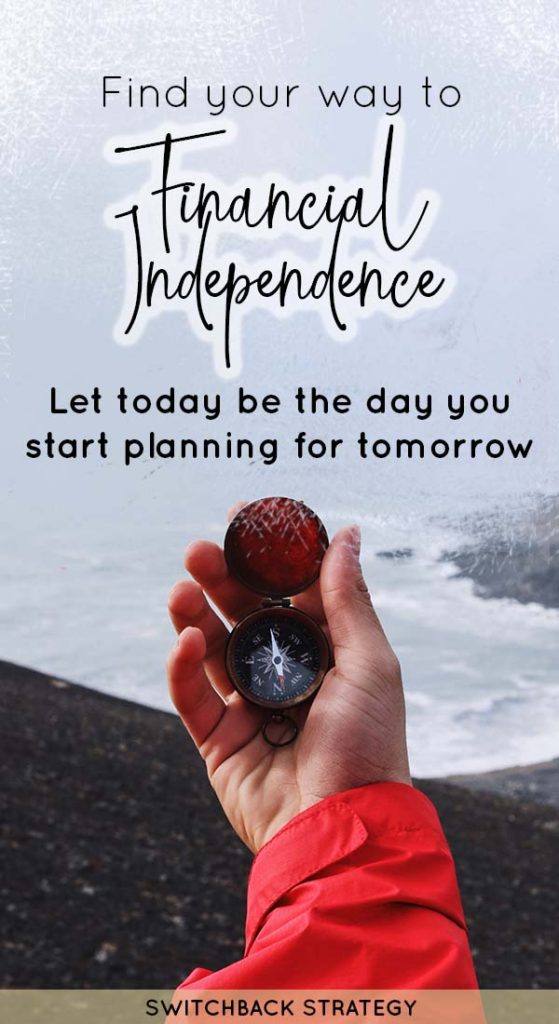Have you been thinking about setting some financial goals, but it’s 11PM and you just spent two hours flipping through TikTok? Only to wake up in the morning with great intentions to start, but then hit the “snooze.”
I’m glad you’re here – you and I, we have a lot in common.

Disclosure: This post may contain affiliate links, which means I may receive a small commission, at no cost to you, if you make a purchase through a link on this blog. I would never recommend a product I don’t use or love myself.
Saving money is obviously good in theory, it never hurts to have some extra cash around.
But if you’re anything like me, what gets saved gets spent, as you teeter back and forth between only eating ramen and “treat yo’self” impulse shopping sprees. Somewhere between the start of the month and the end of the month, life happens.
So what are you saving for? The truth is, money is a tool to get us what we want. The problem is that what we want right now, may not be what we want for the future. Giving money a goal puts it to work for long term success.
Time to dig deep, if you will, I will, and we can get this accomplished together.
1. SET GOALS
Think about what is most important to you and what you want to achieve. Goal setting will help you to remember why you are putting in all the effort. The more clear and personal your goals are, the more successful you will be at reaching them.
A goal such as “I want to be financially independent so that I can quit my job and spend a year traveling the world” or “I want to be able to work part time, so that I can be there to pick my kids up from school every day” is going to matter a lot more than “I want to make a lot of money.”
Write it down. Make it concrete.
Share it with someone. Telling another person your goal increases the chances that you’ll stick to it. It creates some external accountability. Feeling a sense of responsibility to someone else can be a strong motivator.
Visualize it. The more defined and visceral your goal is, the more likely you are to achieve it. Place a picture where you can see it. Keep reminding yourself.
2. CREATE A PLAN
Determine what actions are required to reach your goals.
Personal Finance plans should include the following areas:
- A Budget
- A fully funded Emergency Fund
- Management of Expenses
- Debt pay-off
- Investment plan
- Retirement plan
- Wealth building
Break your big goal into set milestones to achieve along the way and work backwards to determine what you need to do to hit those milestones.
Your plan can change over time, but a roadmap will give you some direction on where you are going.
Consider what it’s going to cost
If you really want to be successful, your plan should also include the pain you are willing to go through in order to get your goals. If you have things you want to achieve that are going to require making a change, then there is going to be a trade-off along the way.
Here are some of the things I have on my list:
- I am going to cook at home, bring lunch to work, and reduce my eating out budget
- Bring a shopping list with me, buy generic brands from the store and price compare
- Reduce personal shopping to only necessary things to replace things that get worn out
- Decrease my TV watching
- Say no to things like concerts and big ticket events
It is one thing to have a goal, but another to start looking at what you are willing to change in your life in order to achieve it. Setting the goal is not enough in itself.
Reward yourself
Don’t forget to also plan in things that you will reward yourself with when you hit milestones.
For me these look like:
- When net worth is at $0 we will take a 1 week road trip
- When loans are paid off we will take an international trip
3. FORGIVE YOURSELF FOR MISTAKES YOU MAKE
Sometimes you make a lot of strides and sometimes you stumble, that is all normal. You may make mistakes with your money, and that is okay.
If I am being honest, this is the area that I have struggled with. It is why I chose the name Switchback Strategy, as a reminder that even if you don’t stick to a straight uphill path the whole way, it’s ok. You don’t have to be perfect to still make progress.
Holding on to failures can be paralyzing towards future success. Sometimes, the more information I got from researching, the more I felt like I had already been failing miserably. That is one of the things with knowledge, the more you learn, the more you realize that you don’t know. If this is happening to you, it’s natural.
Done is better than perfect
Having a short memory is helpful. Journaling can be a great outlet to keep track of things you learn, successes, and ways to improve.
Forgiving yourself requires compassion, kindness and understanding. Be honest, acknowledge what was done and also what you learned from it.
Appreciate the learning and growth that is gained from an experience, and then move on.
4. KEEP WORKING AT IT
The journey to financial independence is not easy. Motivating yourself can be hard.
Focus on things that you find enjoyable, and give yourself little rewards for working on things you struggle with.
Build new skills by reading, taking a class, or trying a new technique.
Be open to change, as situations shift, you may need to modify your plans.
And Remember
The end goal is to focus on what would make you really happy, and to use your money to make it happen.
I value having time to spend with my family and feeling financial security, over buying fancy new things.
Explore what it is that you really want, and if your money can help you become that person.
Along the way, be kind to yourself. Remember that it’s a journey. Every day may not go quite as planned, but it’s about sticking to the plan over the long haul



